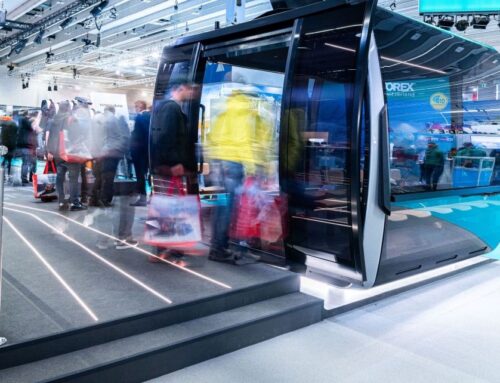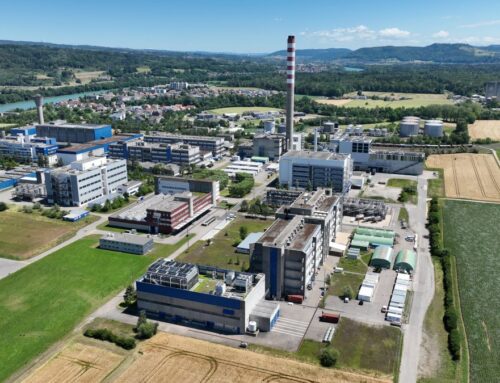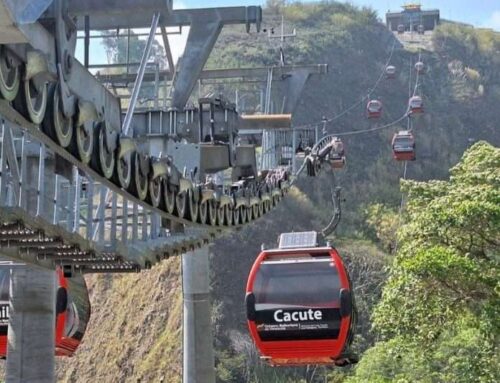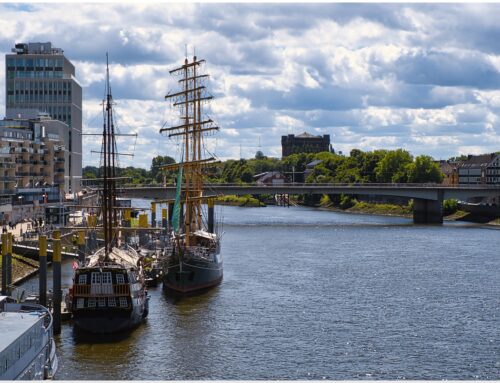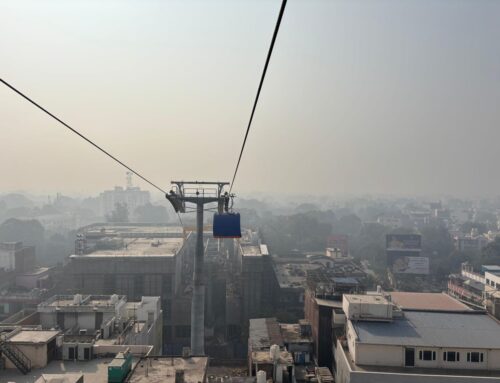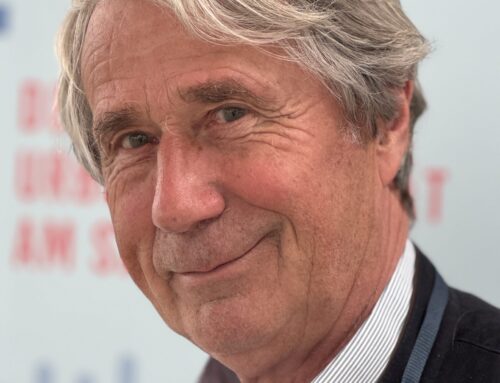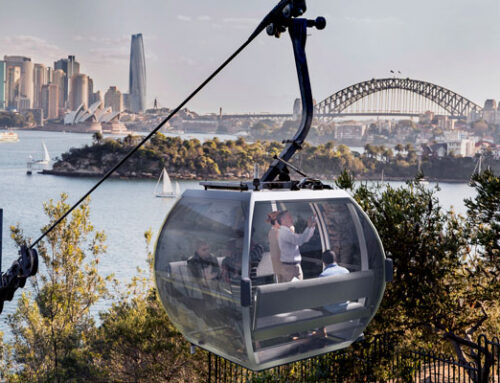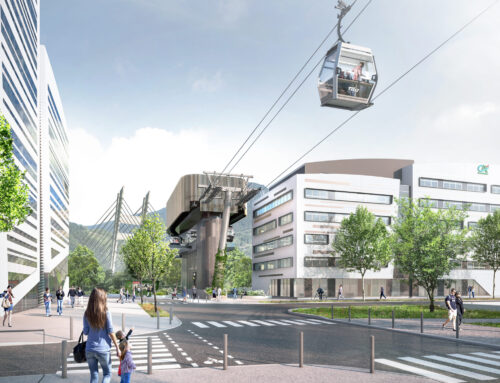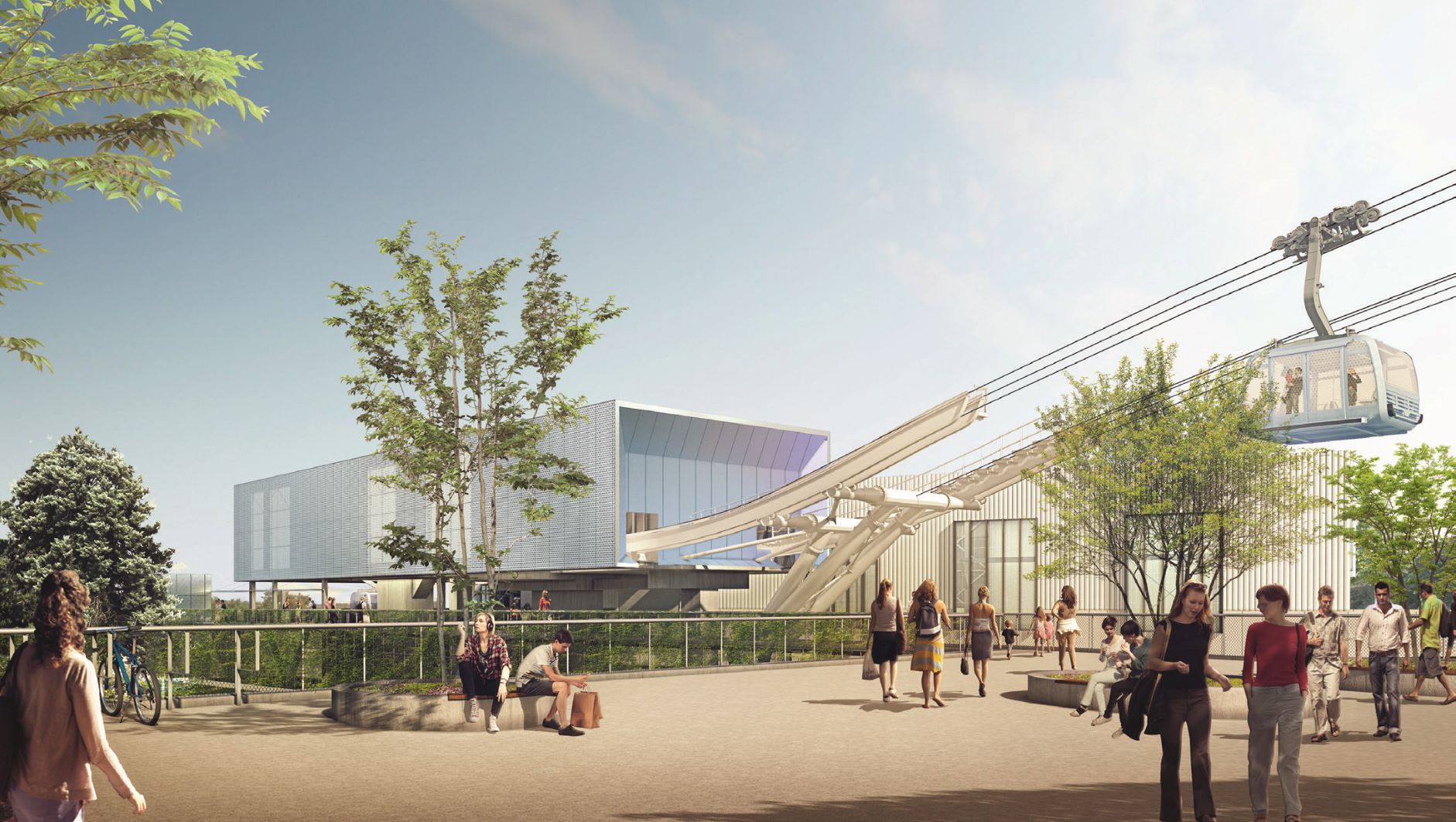
Cities, SI Urban 2/2020, SI-Urban
Toulouse: 3S-cable car for the city
The idea of a cable car that connects both parts of the city in a journey time of ten minutes and therefore saves people a 45-minute journey by car was discussed as early as in 2003. However, the decision was made only 2016, after two changes of leadership in the city government. Now Tisséo Ingénierie is heading the projecting on the behalf of the municipality.
“At POMA, we then won the tender, as we had formed a consortium with regional businesses. Together with local companies Bouygues (Civil works), Séquence (architects), Seti (engineers) and service partners (ALTISERVICE a Pyrenees ski resorts operator), we were able to supply the best offer technically and economically for construction of the cable car as well its maintenance for twenty years,” POMA Project Manager P. Laville reports on enquiry by SI Urban.
The order for more than 82 million euro including conception, realisation, support operations and project management. The Maintenance contract for 20 years costs 38 million euros. “The toughest challenge of the construction is undoubtedly the cable route in the urban setting,” Laville says. Construction work began in summer 2019 and should be completed in summer 2021.
Téléo Toulouse:
| Length | 3 km |
| Altitude difference | 100 m |
| Transport capacity | 1,500 (2,000) |
| Stations | 3 |
| Gondolas | 15 (20) |
| Gondola capacity | 34 p. |
| Stanchions | 5 |
| Max. Speed | 27 km/h |
| Operating Speed | 20 km/h |
| Journey time | 10 min |
| Investment costs | €82 m. |
| Maintenance coasts (20 years) | €38 m. |
The cable car, named “Téléo” will extend over three kilometres and cross both the river Garonne and Pech David Hill. With the Oncopole institute, Paul Sabatier University and CHU Rangueil hospital, three major transport hubs will now be connected in a journey time of only ten minutes – at the moment, a journey by car takes 45 minutes. With the cable car, a whole cluster will be better integrated into the existing public transport network (metro and bus). Accordingly, up to 8,000 passengers per day are expected on the cable car. The frequency will be up to one cabin every 1:30 in peak hours. Teleo will operate as well as the metro, with the same time range from 05:00 AM to 00:30 PM.
3S system for greater wind stability, comfort and space
The cable car is part of the 2020-2025-2030 Toulouse infrastructure project and designed as a three-cable circulating track (3S), to guarantee high wind stability and therefore reliability. Furthermore, the 3S system requires fewer but higher supports, which minimise the negative scenic, visual and noise impact. “The larger gondolas with wider entrance doors offer greater comfort for all passengers – in particular for hospital patients with limited mobility,” says D. Baud-Lavigne, Sales manager for urban cable cars. Moreover, the gondola design from Pininfarina design studio makes the journey a visual experience, especially as the generous panels of glass allow spectacular views.
Initially 15 gondolas, each carrying 34 people, will cross Toulouse. “In a second phase this will be increased to 20 gondolas, which will raise the transport capacity from 1,500 to 2,000 people per hour,” Project Manager P. Laville adds.
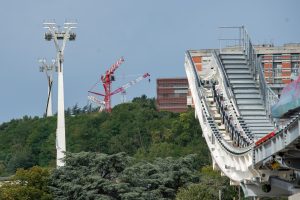
Construction
The cable car in Toulouse has been under construction since summer 2019. Photos: POMA
Spacious & integrated stations
With the 3S system, the three stations are designed to be very spacious and have been approved by French architectural association Bâtiments de France as buildings that are perfectly integrated into the surroundings. “One important feature is the integration of the cable car into the public transport network, such as with the university metro station and with the bus station at the oncology institute,” D. Baud-Lavigne emphasises.
The platforms are laid out so that all passengers can board and alight within 1:30 minutes – regardless of whether they are travelling as pedestrians or with bags, suitcases, bicycles, pushchairs or a wheelchair. The speed and transport capacity of the cable car can be adapted to the volume of passengers (peak times versus quieter periods).
Environmentally friendly & safe
However, the 3S cable car will not only make daily life easier for the residents of Toulouse; it will also reduce the ecological footprint of the French city. Thanks to the electric drive, the cable car reduces environmental impact by 30 percent compared with car traffic. Moreover, the 3S technology means only five supports are required, so the soil sealing and impact on the landscape are very low. In comparison: a single-cable circulating track on the same route would need 20 supports.
The cable car is also very sustainable, up to 80 percent will be produced in France due to the french manufacturer POMA.
Furthermore, the cable car in Toulouse will be very quiet. The gondolas themselves have no drive; the motor is located in a single soundproof station. Safety also favours the mode of transport by cable: “As we are crossing a river and built-up areas, we have designed a certified, integrated rescue system with which the gondolas can be moved back the stations in an emergency,” D. Baud-Lavigne concludes. The 3S system is therefore doubtless also of interest for many other cities

